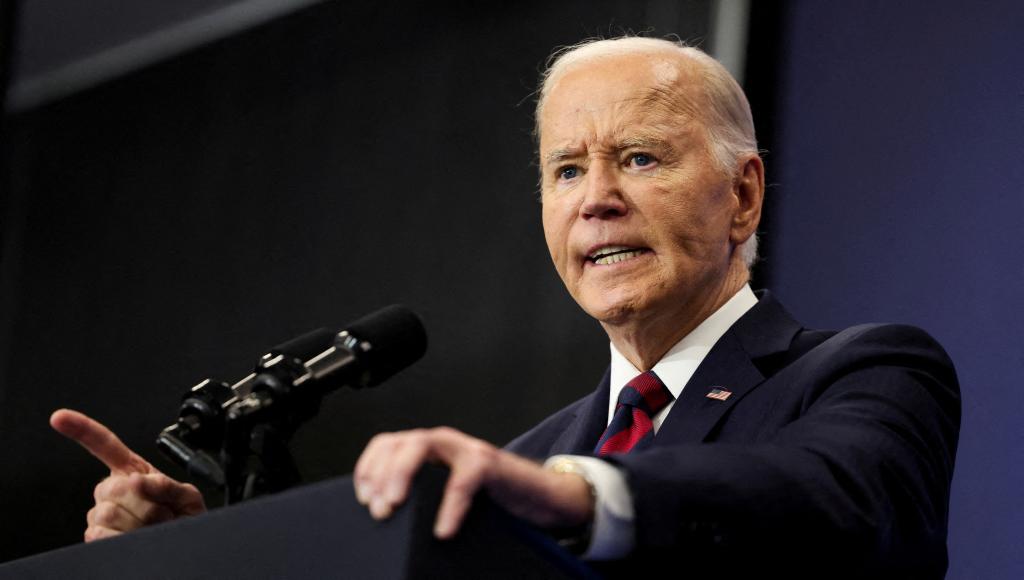The Biden administration’s recent settlement to fully reopen the Adelanto ICE Processing Center, the largest private migrant detention facility in the United States, has sparked intense criticism and accusations of paving the way for President-elect Trump’s anticipated mass deportation plans. The 1,940-bed facility, located near Los Angeles, has been operating at a significantly reduced capacity due to a 2020 court order stemming from concerns about COVID-19 outbreaks. This settlement effectively lifts the restrictions, allowing the center to return to full capacity, a move that has drawn sharp rebukes from immigration advocates who view it as a betrayal of the administration’s earlier commitments to a more humane immigration policy.
The timing of the settlement, occurring just as Donald Trump prepares to reassume the presidency, has fueled speculation that the Biden administration is intentionally facilitating Trump’s hardline immigration agenda. Critics argue that reopening Adelanto provides the infrastructure necessary for mass detentions, a key component of Trump’s previously stated plans to expedite deportations. This perceived alignment with Trump’s policies has disillusioned many immigration rights supporters who had hoped for a more progressive approach from the Biden administration. The settlement has been interpreted as a capitulation to political pressure, prioritizing expediency over the well-being of vulnerable migrants.
The controversy surrounding Adelanto highlights the ongoing tension between border security concerns and the humanitarian treatment of migrants. Proponents of reopening the facility argue that it is a necessary tool for managing the influx of migrants at the southern border, preventing overcrowding at other facilities, and ensuring the orderly processing of individuals entering the country illegally. They also point to the economic strain placed on local communities by the “catch and release” policy, arguing that detention is a more responsible approach to managing migration flows.
However, critics counter that detention centers like Adelanto represent a cruel and inhumane approach to immigration enforcement. They cite concerns about the potential for human rights abuses, inadequate medical care, and the psychological toll of prolonged detention, particularly on families and children. Moreover, they argue that the vast majority of migrants seeking asylum are fleeing persecution and violence in their home countries and deserve to be treated with dignity and compassion, not incarcerated in overcrowded facilities. The debate over Adelanto reflects a broader disagreement about the fundamental purpose of immigration policy: whether it should prioritize enforcement and deterrence or focus on humane treatment and integration.
The legal battle over Adelanto began in 2020 amidst the COVID-19 pandemic, when a lawsuit challenged the facility’s conditions, alleging that they posed a serious risk to the health and safety of detainees. The court order limiting the center’s capacity aimed to mitigate the spread of the virus within the facility, recognizing the heightened vulnerability of detained populations to infectious diseases. The Biden administration’s decision to settle the lawsuit and allow Adelanto to reopen raises questions about the adequacy of current safeguards against future outbreaks, especially given the ongoing threat of new variants and the inherent challenges of maintaining proper sanitation and hygiene in detention settings.
The reopening of Adelanto underscores the complex and politically charged nature of immigration policy in the United States. While the Biden administration has touted its commitment to a more humane approach, the settlement regarding Adelanto suggests a willingness to compromise those principles in the face of political pressure and logistical challenges. The decision has reignited the debate over the role of detention in immigration enforcement, raising fundamental questions about the balance between national security, public health, and the humane treatment of migrants. As the political landscape shifts with the return of a Trump administration, the future of Adelanto and other detention centers is likely to remain a focal point of contention, reflecting the ongoing struggle to define a just and equitable immigration policy.

